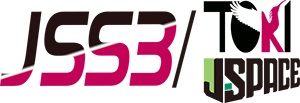CFD Analysis of Wind Fields Around Regional Airports
JAXA Supercomputer System Annual Report February 2024-January 2025
Report Number: R24EEA10100
Subject Category: Aeronautical Technology
- Responsible Representative: Atsushi Kanda, Hub Manager, Aviation Safety Innovation Hub
- Contact Information: Midori Maki(maki.midori@jaxa.jp)
- Members: Midori Maki, Hiroki Tadakawa
Abstract
Sudden changes in low-level wind conditions around airports pose a potential risk to aircraft during takeoff and landing. This project aims to improve the situational awareness of pilots and flight dispatchers by predicting and visualizing terrain-induced turbulence in the atmospheric boundary layer based on LES analysis, thereby enhancing safety.
Reference URL
N/A
Reasons and benefits of using JAXA Supercomputer System
CFD analysis of several hundred million points is required to resolve topographical turbulence in the atmospheric boundary layer and to study aircraft dynamics. This requires the use of a supercomputer such as JSS3, which boasts large memory capacity and high computational performance.
Achievements of the Year
We analyzed terrain-induced turbulence at several airports in Japan using a solver specialized for wind analysis over actual terrain. The results were verified by comparing them with observed wind data. The mechanism of terrain-induced turbulence that causes aircraft turbulence was clarified, and the conditions and locations of its occurrence were identified. Furthermore, it was confirmed that the simulations correctly reproduced the spatio-temporal characteristics of the turbulence through comparison with observed data.
Publications
- Oral Presentations
Hiroki Tadakawa, Yuka Fujita, Midori Maki, Takanori Uchida: A study of Turbulence Visualization System for Landing Safety at Regional Airports: Wind Observation at Okinoerabu Airport, 62nd Aircraft Symposium, 2024.
Usage of JSS
Computational Information
- Process Parallelization Methods: MPI
- Thread Parallelization Methods: OpenMP
- Number of Processes: 1 - 36
- Elapsed Time per Case: 12 Hour(s)
JSS3 Resources Used
Fraction of Usage in Total Resources*1(%): 0.07
Details
Please refer to System Configuration of JSS3 for the system configuration and major specifications of JSS3.
| System Name | CPU Resources Used(Core x Hours) | Fraction of Usage*2(%) |
|---|---|---|
| TOKI-SORA | 0.00 | 0.00 |
| TOKI-ST | 600737.11 | 0.62 |
| TOKI-GP | 0.00 | 0.00 |
| TOKI-XM | 0.00 | 0.00 |
| TOKI-LM | 0.00 | 0.00 |
| TOKI-TST | 0.00 | 0.00 |
| TOKI-TGP | 0.00 | 0.00 |
| TOKI-TLM | 0.00 | 0.00 |
| File System Name | Storage Assigned(GiB) | Fraction of Usage*2(%) |
|---|---|---|
| /home | 98.00 | 0.07 |
| /data and /data2 | 56124.00 | 0.27 |
| /ssd | 1004.00 | 0.05 |
| Archiver Name | Storage Used(TiB) | Fraction of Usage*2(%) |
|---|---|---|
| J-SPACE | 4.28 | 0.01 |
*1: Fraction of Usage in Total Resources: Weighted average of three resource types (Computing, File System, and Archiver).
*2: Fraction of Usage:Percentage of usage relative to each resource used in one year.
ISV Software Licenses Used
| ISV Software Licenses Used(Hours) | Fraction of Usage*2(%) | |
|---|---|---|
| ISV Software Licenses(Total) | 0.00 | 0.00 |
*2: Fraction of Usage:Percentage of usage relative to each resource used in one year.
JAXA Supercomputer System Annual Report February 2024-January 2025


